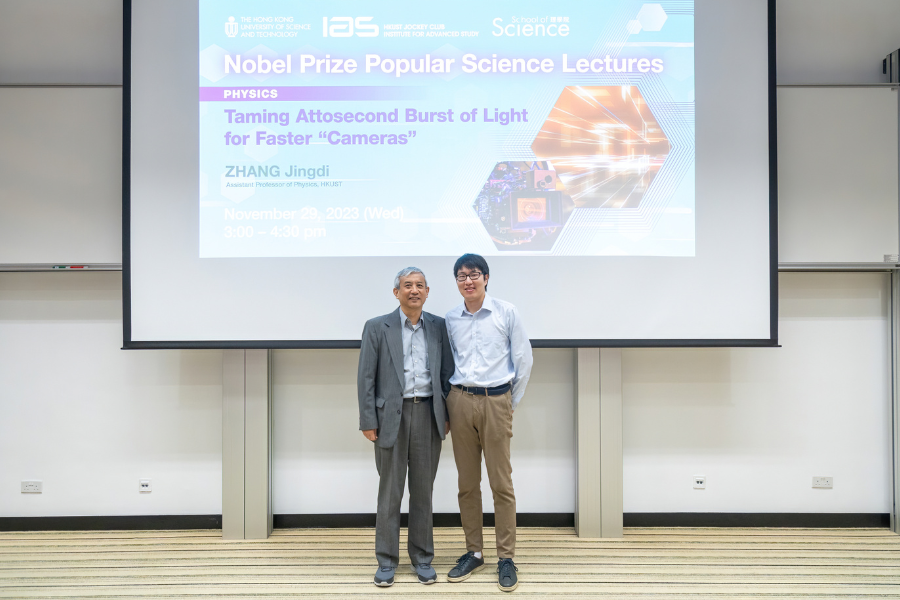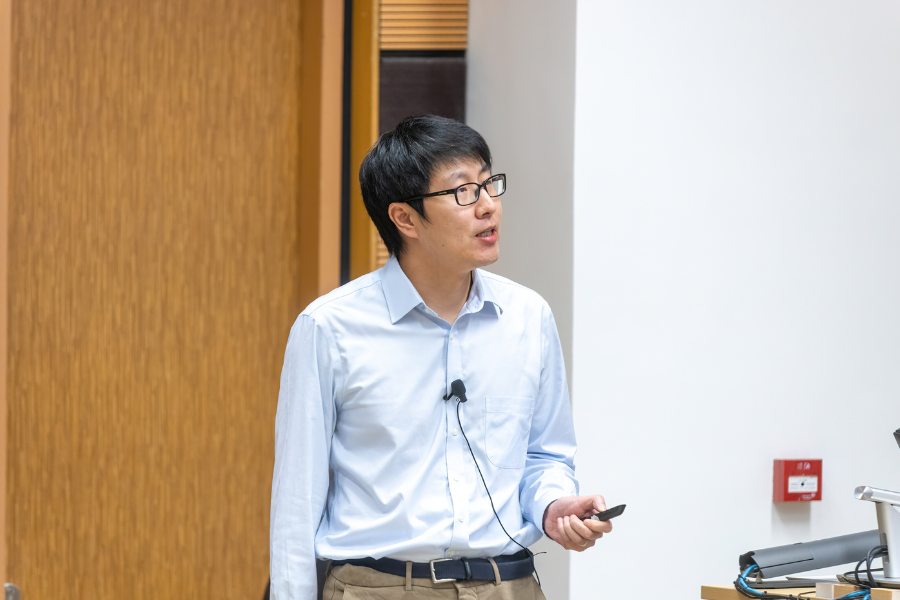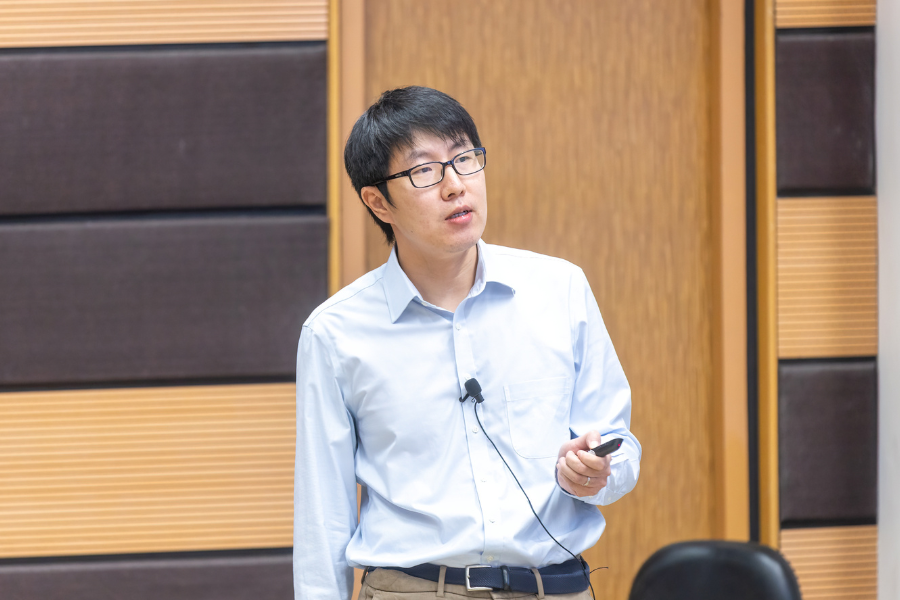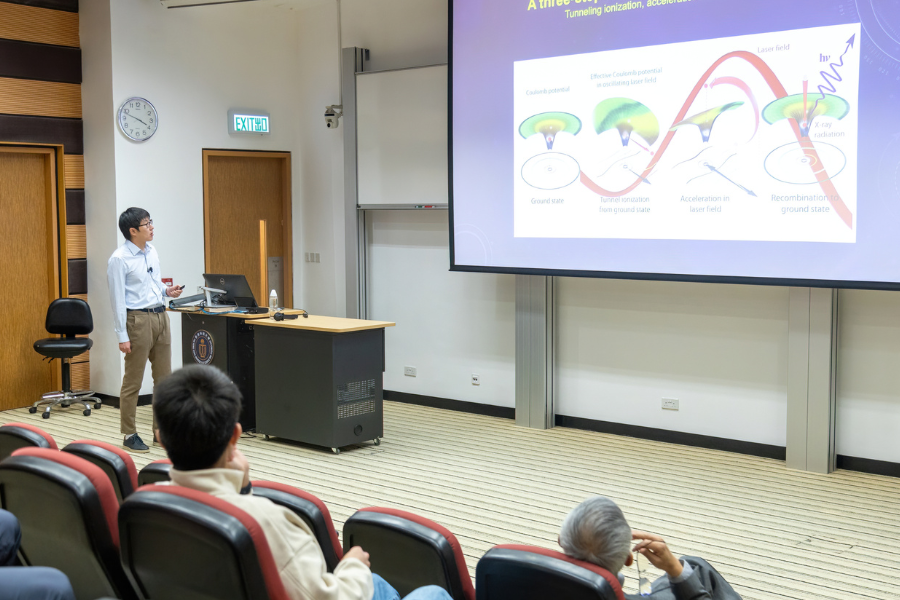Taming Attosecond Burst of Light for Faster "Cameras" - 2023 Nobel Prize in Physics
Abstract
In photography, to capture short dynamic events, mechanism for even shorter exposure to light has to be established. The same rule applies for insights into fundamental dynamic processes in the universe at all timescales. It requires an exposure time less than 40 ms (10^-3 s) to resolve the fine motion of a galloping horse; 2 µs (10^-6 s) for lightening formation, 10 fs (10^-15 s) for chemical reaction and molecular vibration. The 2023 Nobel Prize in Physics highlights the experimental triumph of generation and control of burst of photons in the attosecond regime (1 attosecond = 10^-18 s), making possible unambiguous investigation of electrons in atomic systems. The speaker will explain in detail the attosecond metrology and how it takes “motion pictures” of electrons via light-matter interaction. Possible applications will be discussed, e.g. lightwave electronics for petahertz signal processing and nuclear clock for timekeeping.
About the Speaker
Prof. ZHANG Jingdi received BS at the University of Science and Technology of China and PhD in Physics at Boston University. He then moved to La Jolla, California and worked as a postdoctoral fellow at UC San Diego before joining the faculty of HKUST Physics in 2019. He is an expert in dynamic control of quantum materials and metamaterials through light-matter interaction as well as developing novel spectroscopic tools, particularly at THz frequencies
For Attendees' Attention
Seating is on a first come, first served basis.






